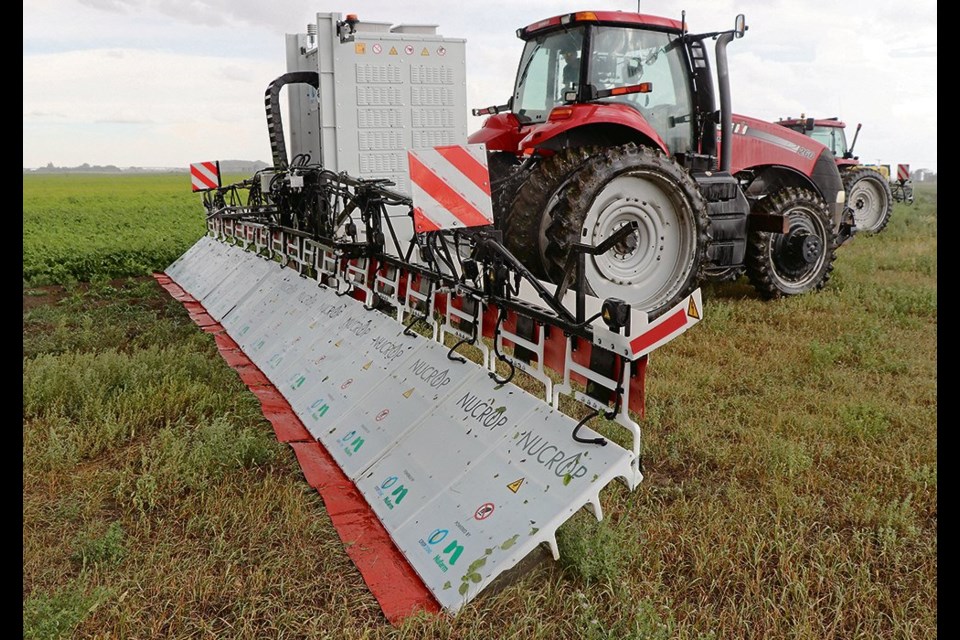BRODERICK, Sask. — An electrophysical weeder was used for the first time in Canada to terminate a potato crop.
An electrophysical weeder uses a combination of a product sprayed onto a crop to increase conductivity and a machine that drags electrified panels across plants to electrocute them.
The Crop.Zone system uses an applicator on the three-point-hitch on the front of a tractor to apply the product with 24-foot booms.
On the rear three-point-hitch a large p.t.o.-driven generator is connected to 16 high-voltage transformer panels that also spread eight-metres wide when folded out.
Each 7kw panel, which the company calls the applicator, distributes 1,600 to 5,500 volts to the plants it touches.
The electric jolt ruptures the weed's cell walls so water cannot move within the plant, and it follows the stem down about five centimetres into the soil.
The demonstration was held at Sunrise Potato Farms, north of Broderick, Sask., last week. It was a challenging start to the trial, as Crop.Zone could not find a tractor with both a front and rear three-point hitch, so a separate tractor was used to spray the conductive product needed to ensure good power transmission.
Benedikt Hayer works at German-based Crop.Zone and he said the applied product is a non-toxic conductive liquid that meets organic farming guidelines. It reduces the required current to kill the plants by softening wax layers and bridging irregularities on the plants.
“We built 14 machines last year as prototypes and had them tested in different countries all over Europe. This year, we started with a series production,” Hayer said.
“We’ve built the machine to desiccate potatoes with electricity as an alternative for desiccation with chemicals.”
The system works at about four km-h and can cover approximately six acres in that time.
However, if the crop has low biomass, the electrifying-desiccation machine can work at up to eight km-h.
Hayer said potatoes are difficult to kill and in some instances two passes with the Crop.Zone are needed.
The Crop.Zone system is being used in Europe and is available through its partner Nufarm.
Hayer said it can be used in multiple crops and that the company is also demonstrating it in a Canadian oat crop this year.
Research organized by Crop.Zone indicates there is little impact on soil life, including earthworms, from the electricity.

